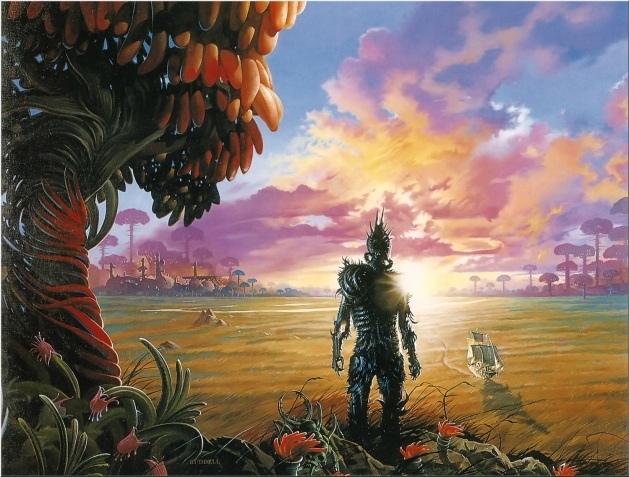Well, I’ve done it. I’ve finished The Book of the Short Sun and, with it, Gene Wolfe’s “Solar Cycle”. It was worth it. The rest of this post will assume that you have read or are at least familiar with The Book of the New Sun. The Book of the Short Sun tells the story of a man who strives to fulfill a great vow, perhaps taken too lightly, and changes greatly because of it.
Assuming one has read The Book of the New Sun, I hope to convince you to read the rest of the Solar Cycle.


![The-Light-of-Other-Days-2834606[1]](https://i0.wp.com/sfoil.net/wp-content/uploads/2018/10/the-light-of-other-days-28346061.jpg?resize=250%2C250&ssl=1)
![STRSHPTRPR1997[1]](https://i0.wp.com/sfoil.net/wp-content/uploads/2018/09/strshptrpr19971.jpg?resize=418%2C605&ssl=1)






